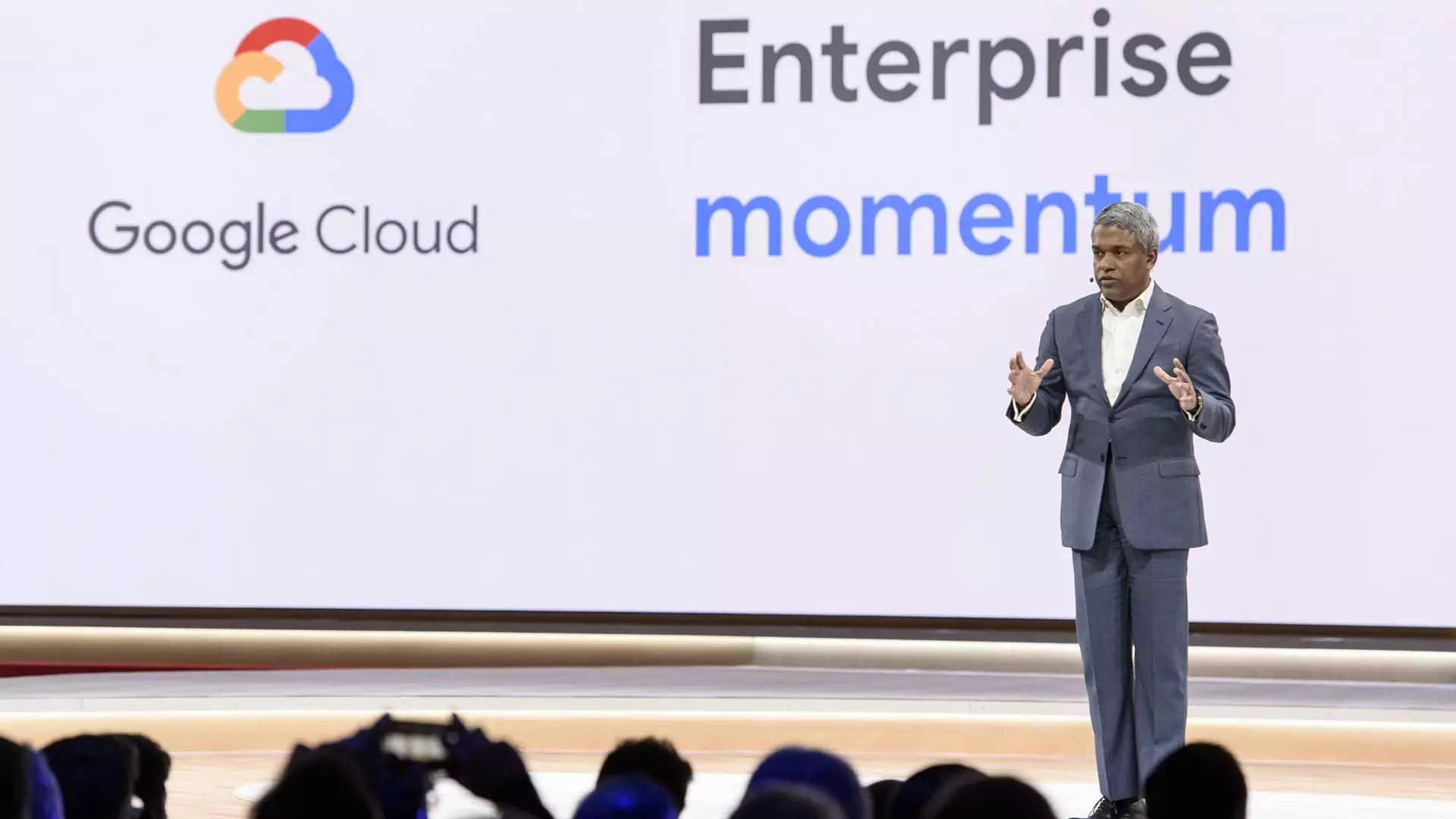Cloud computing has become an integral part of modern business operations, allowing organizations to rent resources in remote data centers and pay based on usage. In an effort to make cloud computing more affordable and efficient, Google has announced the development of a custom-built Arm-based server chip at its Cloud Next conference in Las Vegas. This move aims to help Google compete with industry rivals like Amazon and Microsoft, who have been using similar strategies for years.
Google’s decision to introduce a new Arm-based chip reflects the company’s determination to catch up with competitors in the cloud infrastructure market. Currently, Google holds 7.5% of the market share, while Amazon and Microsoft collectively control around 62%. The introduction of Amazon Web Services’ Graviton Arm chip in 2018 has already made a significant impact on the market, with major players like Datadog, Elastic, Snowflake, and Sprinklr opting for Arm processors. Embracing Arm technology allows organizations to reduce costs associated with cloud computing, especially in times of economic uncertainty.
The shift towards Arm-based chips is driven by the potential for improved cost efficiency and performance enhancement. Amazon claims that its Graviton chip can deliver up to 40% better price performance compared to traditional x86 server instances. Google’s new Arm-based chip, named Axion, is expected to offer 30% better performance than existing Arm-based virtual machines in the cloud and 50% better performance than x86-based VMs. Additionally, Axion chips provide 60% more energy efficiency, leading to reduced carbon emissions for certain workloads. This balance of cost-effectiveness and performance improvement positions Google as a strong competitor in the cloud computing market.
Strategic Implementation and Future Prospects
Google’s gradual transition to cloud-based Arm instances, such as Axion, signifies a strategic approach to integrating Arm architecture into its infrastructure. By leveraging Arm technology for internal operations, Google aims to optimize resource utilization and enhance the capabilities of key services like YouTube advertising, BigTable, Spanner databases, and BigQuery analytics. Partners like Datadog, Elastic, OpenX, and Snap have already expressed their intentions to adopt Axion, indicating a potential shift towards broader adoption of Arm-based chips in the industry. As Arm chips gain popularity in smartphones and offer streamlined instructions for faster application processing, the adoption of Arm technology presents a promising future for cloud computing.
Google’s announcement of a custom-built Arm-based server chip marks a significant milestone in the evolution of cloud computing. By embracing Arm architecture, Google aims to drive cost efficiency, enhance performance, and reduce environmental impact in the cloud infrastructure market. The introduction of the Axion chip and its potential for widespread adoption among key industry players position Google as a formidable force in the realm of cloud computing. As organizations seek to optimize their cloud resources and stay competitive in a rapidly evolving digital landscape, the strategic integration of Arm technology offers a promising pathway towards greater efficiency and innovation.

